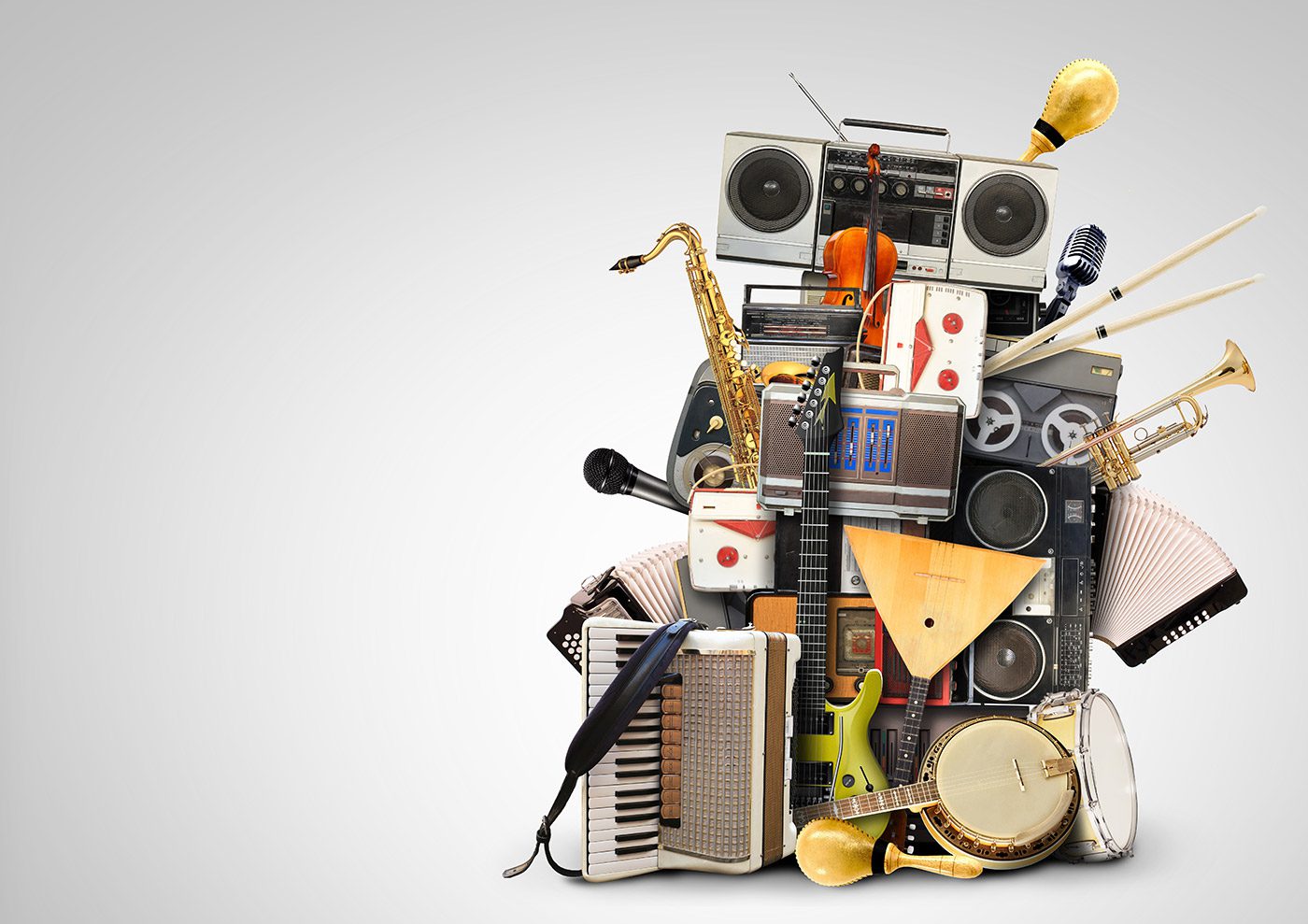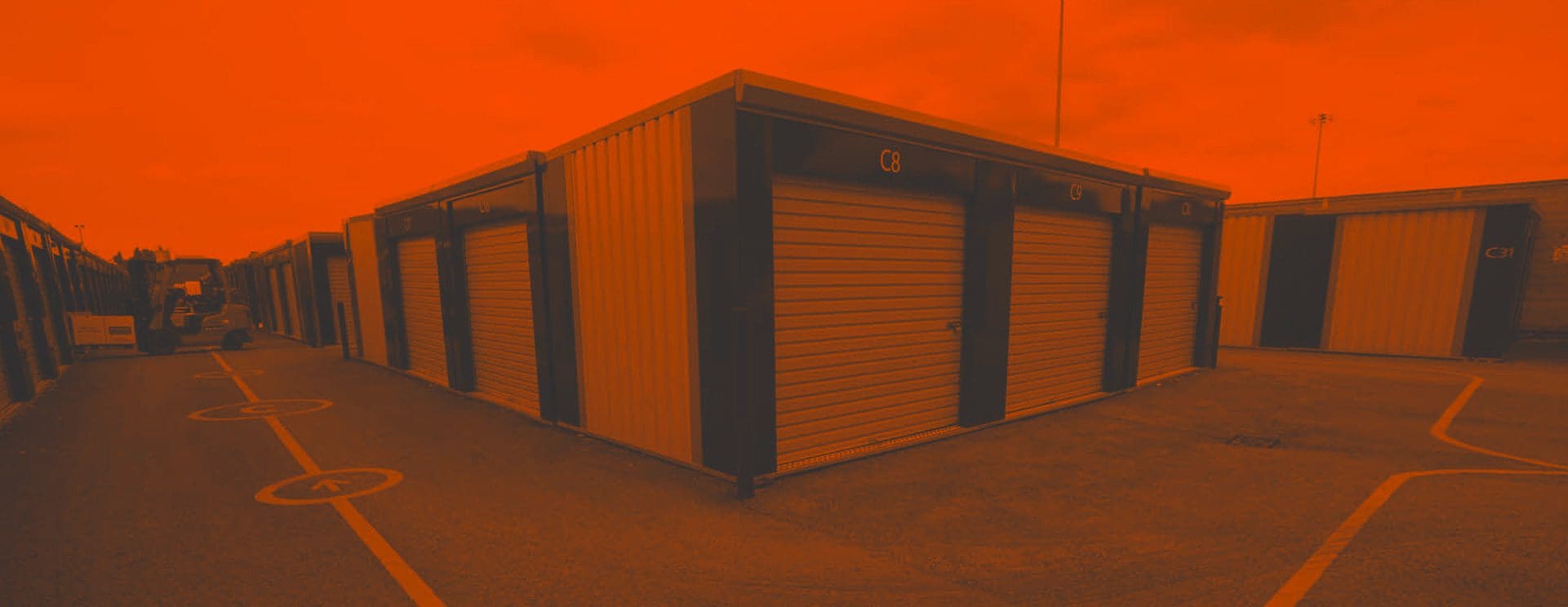
Storing Musical Instruments: A Guide for Soloists and Orchestras
Storing Musical Instruments: A Guide for Soloists and Orchestras
Every virtuoso knows the value of their instrument. But for those of us who aren’t that familiar with just how valuable some instruments can be, you might just be knocked back on your heels to find out.
The piano Dooley Wilson used to play “As Time Goes By” in the seminal 1942 movie Casablanca sold for $3.4 million in 2014. The “Messiah” Stradivarius violin, named for its immaculate condition despite being made by Antonio Stradivari in 1716, when the craftsman was at the height of his powers, is estimated to be worth $20 million.
We’ve not even begun to discuss sentimental value. Your first violin, bought for you by a treasured parent on a birthday or Christmas to remember. An heirloom that has been passed down the family for generations. An instrument that was an outlet for your passion, your creativity, and a lifeline to happiness during the more challenging periods of your life. These are all reasons people have for never discarding that musical instrument that they may not play every day but can’t bear to part with.
Why use self-storage to store your musical instruments?
Okay, so you have storage space in your home, school, and church. You believe it to be adequate to store musical instruments. Why would you then pay for self-storage?
Simple. Self-storage provides a clean, safe, and climate-controlled environment. One that’s free of hazards, with ample space for musical instruments of all shapes and sizes. Whether you’re a dedicated musician with a collection of trombones or someone with a saxophone that they hold dear to their heart, there’s no better environment to store your musical instruments.
Now, of course, if you only own a couple of tambourines and a triangle or two, self-storage might not be the best option. But if you need to find somewhere to store a collection of instruments or a whole orchestra, you’d be hard-pressed to find a better environment than self-storage.
General guidelines for storing musical instruments
As any musician knows, instruments should be stored correctly to maintain their integrity and longevity. Remember, not even Charlie Parker, Miles Davis, or Jimi Hendrix would be able to enchant or enrapture crowds with an instrument dulled by years of neglect.
Whether you’re storing a school or church orchestra or your treasured electric guitar, there are a few general guidelines that everyone should follow to enjoy years and years of joy with their trumpet, guitar, or piano at their fingertips.
Make sure that your instrument is stored at a consistent temperature. Twenty degrees Celsius and a humidity of 40–50%. These conditions will prevent warping, cracking, or any additional types of damage. It sounds like you need a climate-controlled environment, right? The good news is that these self-storage facilities offer just this.
If you can, be sure to store your instruments in their original cases. Not only does this add an extra layer of protection, but it also gives you peace of mind that your treasured viola, French horn, or cymbals will be protected for however long you want to keep them in self-storage.
Now, of course, not all musical instruments should be stored in the same way. For example, brass instruments are generally stored differently than string instruments. Heavy instruments, such as pipe organs and harps, are not stored in the same way as bassoons or flutes; however, there are some general guidelines to follow when putting musical instruments into storage.
Guidelines for storing specific instruments
So, we’ve covered general storage guidelines. Now it’s time to discuss guidelines for storing specific instruments. After all, how you need to store a drum set will be different from how you need to store a violin.
Below are some guidelines for storing specific instruments. Don’t forget to store your instrument as per the instructions. You may not own a Stradivarius violin, but that doesn’t mean that it’s any less valuable to you!!
Acoustic and electric guitars
First up, let’s look at acoustic and electric guitars. More durable than some other instruments, the viola de Gambas springs to mind because its wood can crack and crumble in environments with too much humidity, acoustic and electric guitars can generally take a bump or two and don’t really need to be tuned before storing.
However, if you’re planning to store one or more acoustic or electric guitars, it’s paramount that you first loosen the strings. This will prevent tension that can warp the guitar’s neck over time. Be sure to use a soft cloth to wipe any dust, dirt, or fingerprints from the surface of the instrument. This can prevent long-term damage. Also, don’t use soap, furniture polish, or window cleaner to clean the guitar, and definitely keep electric guitars away from water!
If you can, store all acoustic and electric guitars in their hard cases. Be sure to stack them vertically, and don’t place them below very heavy objects when in storage.
Pianos and organs
If there’s one musical instrument that’s likely to make people stroke their chin, unsure of how, when, or even if we’re going to bring it with us when moving home or transporting belongings from one school, church, or social environment to another, it’s a piano. Another is an organ. Thankfully, storing a piano or organ until you decide what to do with it or are able to create the space is easier than you think.
Before putting the instrument into storage, the first thing that you’ll need to do is tune it. This maintains string tension, helps to gradually stretch the strings, and stops the instrument from falling out of tune. Remember that pianos need to be tuned at least once a year to keep them up to pitch and playing the correct notes. Concert pianists can plan to tune their piano while it is in storage if they plan to store it for years on end.
Be sure to thoroughly clean the entire piano, including the keys, before putting it into storage. This will prevent the dirt from staining the instrument.
Finally, be sure to store the piano or organ in a place away from heavy objects to prevent potential damage from a falling object, and don’t neglect to cover your piano with a cotton sheet or piano cover to protect it from dust and scratches.
Brass and woodwind instruments
Whether you’re storing brass or woodwind instruments for the short or long term, what you need to remember is that they have different storage requirements than guitars, pianos, or other, often larger instruments.
So, what do you need to do when putting brass and woodwind instruments into storage? Well, for starters, you’ll need to disassemble instruments. Now, whether you’re storing an oboe, clarinet, flute, or saxophone, be sure to remove the mouthpiece and separate the instrument into sections.
Give each section a thorough cleaning, not forgetting to brush the inside. Next, where appropriate, oil and polish the instrument before wiping it thoroughly, paying attention to the fact that the instrument doesn’t have any moisture on it.
Remember, if you’re storing one or a hundred brass instruments, be sure to store them in humidity-controlled environments. High levels of humidity can cause “red rot” or de-zincification. This shows that the brass is being corroded, resulting in the instrument turning red or pink. The solution? Store brass instruments in climate-controlled self-storage. Ideally, not in your bedroom.
Finally, wherever possible, store brass and woodwind instruments in their cases. This will protect them against any accidental occurrences.
Drum sets
Like most musical instruments, you’ll be pleased to know that storing drum sets is reasonably straightforward. The only components that you really need to worry about are the drum shells, which will need to be covered before you put them into storage. A quick look online and you’ll discover that there are many retailers that sell drum bags or hard cases (even a handful of dedicated ones!). and it’s advised that you disassemble the drum kit and put the shells into bags before putting them into storage.
You’ll also need a cymbal bag to place your cymbals in. Luckily, most cymbal bags have space enough to hold as many as five or six cymbals; however, be sure to check the sizes before buying; you don’t want to spend money on a cymbal bag that you can’t use!
As for all your drum hardware, you’ll likely need one bag or case to put all your hardware in, one that fits all stands. We’d recommend that you use a hard bag instead of a soft bag because these tend to tear and rip when exposed to the sharp ends of various aspects of a drum set.
The last thing to remember is to dust and clean the drum set prior to putting it into storage. Don’t neglect to loosen the drum heads to relieve tension and be sure to store cymbals vertically to prevent warping.
Store your instruments properly, and you’ll enhance their lifespan
Imagine how disappointed you’d be if you put your musical instruments into storage, only to open up your storage unit months or years later to discover that they’ve become warped or damaged, making them unplayable. Not only could you lose hundreds or thousands of pounds, but you could also face the heartache of experiencing the loss of a treasured family heirloom.
The good news is that when you choose to put your musical instruments into temperature-controlled self-storage, like that offered by EASS, and store them correctly, you’ll shield them against damage, no matter how long you store them for.
Are you interested in learning more about why EASS is the ideal place to store your musical instruments? Get in touch with us today.
Our Self Storage Solutions
No matter what your self storage requirements you’re guaranteed a fully accessible and secure self storage service with extended hours access.
Moving home? Looking to create more space? We will help you store your personal belongings safety and conveniently.
Easy Access Self Storage is a leading self-storage company in the Manchester area. We’re not just a storage company, we provide an impeccable service to meet even the most exacting of requirements.
To find out more about how we can help you efficiently manage all your storage needs at an affordable cost, and receive four weeks’ storage FREE of charge, give us a call today on 0161 431 5222.
Tailored storage solutions for your business. Whether you have an excess of stock or are relocating, we can help you.
Easy Access Self Storage is a leading self-storage company in the Manchester area. We’re not just a storage company, we provide an impeccable service to meet even the most exacting of requirements.
To find out more about how we can help you efficiently manage all your storage needs at an affordable cost, and receive four weeks’ storage FREE of charge, give us a call today on 0161 431 5222.
Get the best deals for students across the Manchester area. Contact us today for affordable prices on short and long-term storage.
Easy Access Self Storage is a leading self-storage company in the Manchester area. We’re not just a storage company, we provide an impeccable service to meet even the most exacting of requirements.
To find out more about how we can help you efficiently manage all your storage needs at an affordable cost, and receive four weeks’ storage FREE of charge, give us a call today on 0161 431 5222.
Our 24-hour secure facilities are the ideal place to store your vehicle. If you can’t garage your car or want complete peace of mind, we can help.
Easy Access Self Storage is a leading self-storage company in the Manchester area. We’re not just a storage company, we provide an impeccable service to meet even the most exacting of requirements.
To find out more about how we can help you efficiently manage all your storage needs at an affordable cost, and receive four weeks’ storage FREE of charge, give us a call today on 0161 431 5222.

We’re not just storage.
Although many companies claim to, we really do think outside the box, ensuring all your storage needs are covered from start to finish.
Van Move-In Service
FREE Wifi
FREE Forklift
Mailbox Service
Dispatch Service
Extended Hours Access
Coffee & Kitchen Area




